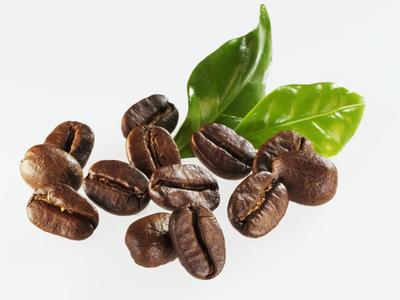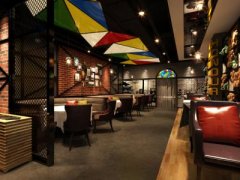A brief introduction to the Origin, Development, History and Culture of Coffee beans from Rwanda, which tastes sweet and citrus

Bourbon coffee grown in Rwanda is one of the original varieties of Arabica coffee. In the 2008 annual professional competition of top coffee held by SCAA, Rwanda Aromec's best washed bourbon defeated Jamaica Blue Mountain No.1 and Sumatra Mantenin G1 Special Selection at the same time and won the 2008 COE(Cup of Excellence) Award.
The taste of Rwandan coffee is described as "grassy aroma" with tropical climate characteristics. In addition to the fruity sweetness of this coffee, it can also taste refreshing, clear and fresh. Bourbon coffee grown in Rwanda is marvellous for its fruity sweetness, its rich, full-bodied aroma, and its long aftertaste. The coffee has a delicious, citrus sweet aroma and a deep chocolate color, and Rwanda Bourbon is known as "coffee that captures and concentrates the essence of Africa in a cup."
PEARL brought coffee specialists to Rwanda, where it was responsible for maintaining contact with the seller, Community Coffee of Louisiana, USA, and sending samples to Louisiana.
In June 2002, representatives of Public Coffee visited Malabar. At that time, the current President of Rwanda, Paul Kagame, stated on behalf of the Government the importance of this programme. Public Coffee bought 18000 kilograms (40000 pounds) of maraba beans for $3 a kilogram, above the market average. Coffee beans are shipped to Louisiana, where they are roasted and used in the company's fine coffee. It was also the first direct contract between an American roasting company and an African coffee cooperative.
Rwanda has been growing coffee since colonial times. Although coffee is the main crop, the quality of coffee produced in Rwanda is not outstanding. The status of coffee in the world is low and few people pay attention to it. Rwanda grows mostly bourbon coffee varieties. Rwanda, known as the "country of thousands of hills", has a high altitude mountain environment, fertile volcanic soil and abundant rainfall, which is conducive to the growth of coffee trees. The advantages of varieties combined with excellent natural conditions should have produced high-quality coffee, but why is the coffee quality not satisfactory? The reason lies in the later processing links. Improper processing will reduce the quality of coffee and sacrifice many good flavors in vain. Harvesting, planting, processing, grading, transportation and other links will directly affect the quality of coffee beans, in which the lack of control in a certain link will become a stumbling block to make good coffee.
Coffee fruits need to be transported to the processing plant as soon as possible after picking, but due to lack of facilities in the country, it is impossible to process the fruits in the first time. The fruits accumulate together after being picked, and lack of ventilation will continue to accelerate mold and rot. The rotten fruits will affect the quality of coffee and appear defective flavor.
Rwanda has made great progress in coffee production and processing in recent years. First, coffee fruit is picked manually; coffee production cooperatives are set up all over the country to provide technical guidance to coffee farmers; coffee farmers send coffee processing stations for cleaning and screening as soon as possible after picking, and select mature and high-quality coffee fruits for processing.
Rwanda coffee, in its washed Arabica bean form, is of absolute quality. As far as Africa is concerned, its coffee industry stands out because the country thrives mainly on producing the best possible coffee beans. Rwandan coffee is gaining increasing popularity on the international market.
The mission of the Rwandan Coffee Association is to manage and supervise the operation of the Rwandan coffee industry from production to marketing. The recently revised mission focuses on policy formulation and implementation, with greater emphasis on efforts to improve professionalism and marketing in the coffee industry. Since its inception, the Rwandan Coffee Association has been instrumental in promoting Rwandan coffee culture and influence.
But anyway, the soft, rich flavor of the country's coffee is excellent.
Rwanda is a small African country, and the local people are also relatively poor, but it produces very good straight coffee, which is different from its neighbors Kenya and Ethiopia. Rwanda's coffee is mainly round bourbon, and the taste is not as prominent as Ethiopia and Kenya, but the uniformity is excellent.
Rwandan coffee, in its washed Arabica bean form, is of absolute quality. As far as Africa is concerned, its coffee industry stands out because the country thrives mainly on producing the best possible coffee beans. Rwandan coffee is gaining increasing popularity on the international market.
The mission of the Rwandan Coffee Association is to manage and supervise the operation of the Rwandan coffee industry from production to marketing. The recently revised mission focuses on policy formulation and implementation, with greater emphasis on efforts to improve professionalism and marketing in the coffee industry. Since its inception, the Rwandan Coffee Association has done a good job of promoting Rwandan coffee culture and influence.
Rwandan coffee is mostly washed. The washing method first washes and floats the ripe coffee fruit, then removes the exocarp, pulp and part of the pectin layer, then sends the coffee to the fermentation tank, ferments the remaining pectin layer and sends it to the drying field for drying treatment, so that the moisture content reaches about 13%. The coffee in the above picture is placed on the African shed for drying to avoid the coffee contaminated with soil. The ventilation effect is better during drying to avoid mildew. During the drying process, coffee farmers will also turn the beans regularly to make the drying more uniform, and at the same time will select the beans with poor quality and discard them.
Important Notice :
前街咖啡 FrontStreet Coffee has moved to new addredd:
FrontStreet Coffee Address: 315,Donghua East Road,GuangZhou
Tel:020 38364473
- Prev

A brief introduction to the description of the flavor, taste and aroma characteristics of Rwanda boutique coffee beans
The taste of Rwandan coffee is described as a grassy aroma with tropical climates. in addition to the sweetness of fruit, this coffee also gives people a feeling of freshness, clarity, and freshness. Bourbon coffee grown in Rwanda is amazing for its sweet fruit, full-bodied, unrestrained and lingering aftertaste. This kind of coffee is delicious
- Next

A brief introduction to the planting market price of Rwanda boutique coffee beans with sweet fruit
The mission of the Rwanda Coffee Association is to manage and supervise the operation of the coffee industry in Rwanda from production to sale. The recently revised mission focuses on policy formulation and implementation, with more emphasis on the need to improve the professionalism of the coffee industry and to increase marketing efforts. Since the establishment of the Rwanda Coffee Association, it has developed Rwanda very well.
Related
- Detailed explanation of Jadeite planting Land in Panamanian Jadeite Manor introduction to the grading system of Jadeite competitive bidding, Red bid, Green bid and Rose Summer
- Story of Coffee planting in Brenka region of Costa Rica Stonehenge Manor anaerobic heavy honey treatment of flavor mouth
- What's on the barrel of Blue Mountain Coffee beans?
- Can American coffee also pull flowers? How to use hot American style to pull out a good-looking pattern?
- Can you make a cold extract with coffee beans? What is the right proportion for cold-extracted coffee formula?
- Indonesian PWN Gold Mandrine Coffee Origin Features Flavor How to Chong? Mandolin coffee is American.
- A brief introduction to the flavor characteristics of Brazilian yellow bourbon coffee beans
- What is the effect of different water quality on the flavor of cold-extracted coffee? What kind of water is best for brewing coffee?
- Why do you think of Rose Summer whenever you mention Panamanian coffee?
- Introduction to the characteristics of authentic blue mountain coffee bean producing areas? What is the CIB Coffee Authority in Jamaica?

